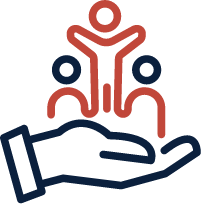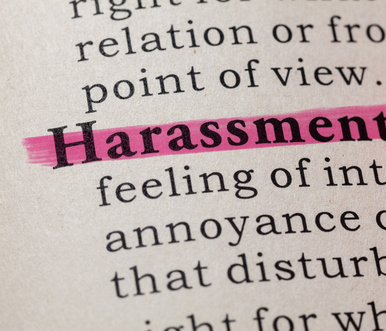According to the U.S. Equal Employment Opportunity Commission, workplace harassment is a persistent problem. In an eighteen-month study on harassment in the workplace, the commission’s select task force noted that one-third of the 90,000 complaints the EEOC had received in a single year related to harassment. This included allegations of unlawful harassment based on race, color, sex (including gender identity, sexual orientation, and pregnancy), disability, age, ethnicity or national origin, and religion. While the sheer numbers are concerning, even more alarming is that reporting harassment was among the least common responses from victims. Roughly three-quarters of those who had been harassed never took formal action to address the harassing conduct.
Why, in the age of #MeToo, Black Lives Matter, and a general growing awareness of the rights of all individuals to equal respect in the workplace, would anybody keep silent? Unfortunately, the reasons are all too familiar: those who have suffered harassment and discrimination don’t speak up because they don’t think they’ll be believed, they don’t think anything will be done, and they fear social or professional retaliation.
The Steep Cost of Harassment and Discrimination
The legal costs of workplace harassment may be one of the most obvious consequences of failing to control discrimination, but they are not the most damaging effect. The true cost of harassment starts with the harm suffered by victims—mental, physical, and economic. Harassment doesn’t just affect those who are directly impacted by derogatory comments, ostracizing behaviors, or threatening conduct, though. Anybody who witnesses harassment and discrimination, especially when it seems to be tolerated within an organization, is impacted. The result is decreased productivity, increased employee turnover, and reputational damage.
For organizations to successfully combat harassment and discrimination, policies of inclusion, diversity, and respect must be backed up with systems of accountability that ensure harassers are held responsible for their behavior. The foundation of such systems must start with giving employees who have suffered or witnessed harassment a safe and easy method of reporting to those who are empowered to address the issue.
Creating Visibility, Driving Change
Problems like harassment thrive on secrecy and shame. #NotMe gives your organization the tools to shine a light on misconduct that may formerly have gone unreported due to fear or embarrassment. With the option to maintain anonymity, employees can report safely, giving you the visibility you need to identify and rectify incidents and patterns of harassment and discrimination. Rather than being blindsided with resignations or lawsuits, your organization can address harassment before it drives away valuable employees and destroys morale.
With #NotMe, your organization can assure your employees that their concerns are truly heard. To find out more about how #NotMe can help address harassment and discrimination, or to request a demo, contact us here.
Sexual Harassment Prevention Training is also available at NotMe Solutions – learn more HERE









